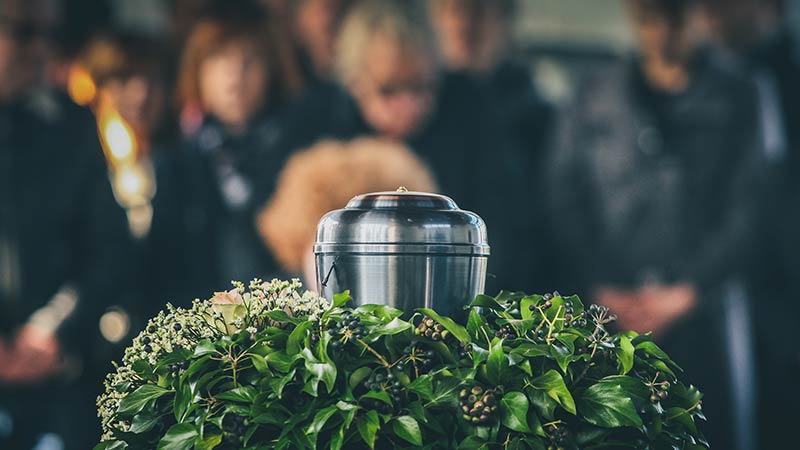

Cremation is the most popular type of funeral these days, with estimates that 75% of all funerals in the UK now involve cremation rather than burial.
Cremation is growing in popularity for a number of reasons; it's cheaper on average than burial and people choosing cremation over burial can have the flexibility to hold the funeral at one time and scatter the ashes at a later date. They can also choose a location that may have more personal connection to the deceased or their family, although some people do choose to place ashes in the grounds of their local church or cemetery.
With cremations frequently being held across the United Kingdom, there are some rules and regulations to consider in order to ensure that the process of scattering the ashes of your loved one goes as smoothly as possible.
Choosing the location for scattering ashes is a very personal thing and many people may express before they die a particular place or location that they want their ashes to be scattered. A lot of requests will be easily fulfilled, especially if the ashes are to be scattered in a public place such as a forest or beach. However, this is not always the case and for certain locations, you may need to get permission before scattering the ashes.
The general rule of thumb is that you'll need to ask for permission if you wish to scatter ashes on private land. This means that if there is a particular sports club or private grounds that you wish to scatter the ashes, you'll need to get in touch with whoever owns the land to ask for permission beforehand. Some lifelong sports fans wish for their ashes to be scattered on the pitch. Get in touch with the club to discuss what arrangements they offer as not all clubs allow ashes to be scattered, but they may offer alternatives such as placing the ashes in their memorial garden or putting up a memorial plaque.
In areas where permission is required, you may have to obtain paperwork before you can scatter ashes but authorities and individuals will usually understand your situation and attempt to help you when possible. There can be different laws and regulations for scattering ashes depending on where you're located in the United Kingdom so getting in touch with local council or authorities would be wise if you're unsure about the rules.
One of the things to consider before scattering ashes anywhere, on private or public land, is whether or not there's a water supply nearby. You'll need to avoid scattering ashes in a location where the ashes could contaminate a drain or water system. If you wish to scatter ashes in or near a river or lake, it's worth getting in contact with the local environmental agency to establish whether or not this is permitted, as there may be underlying issues that mean the ashes can't be scattered there.
The most important thing to consider when scattering ashes is making it a truly personal choice. Unless you're a strict Catholic, with burial over scattering dictated, there are generally no rules to demand you scatter ashes in a certain place. Pick a place that meant something to the deceased and that you and your family will enjoy visiting; scatter the ashes there as long as it's possible and practical.
Some locations, however, will be inaccessible and difficult or dangerous to access. If this is the case, it's probably wise to avoid these places. Similarly, whilst private land or home gardens may seem like a good idea, consider that in the future the land or house may change hands, making it more difficult to access for family members and loved ones.
One thing to avoid is rushing to make a decision. Once the cremation has taken place, you don't have to hurry to scatter the ashes. A lot of people feel obligated to scatter ashes soon after the funeral, but this simply isn't the case. It's better to put more thought and consideration into it, finding a place where you're both able to get permission and that means a lot to the deceased.
One final thing to think about when actually scattering the ashes is how you'll do it.
Most people think about simply casting the ashes into the air. If this is your preferred option, then take account of the wind direction so that the ashes don't blow back on you. Other options include digging a narrow trench to spread the ashes in before covering them again, or you could rake them into the ground.
It's also possible to get biodegradable containers that can be buried or that will float on water for a time, before sinking.
Find a funeral director near you: